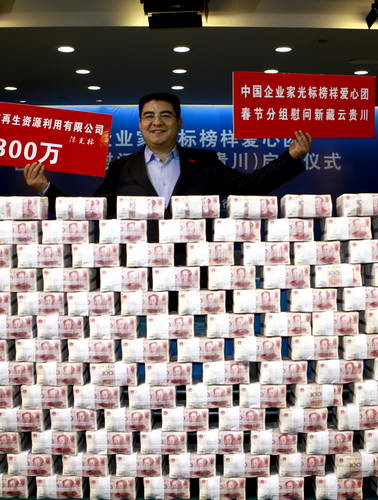Companies
One man's sermon to executives
By Chen Weihua (China Daily)
Updated: 2010-08-26 10:12
 |
Large Medium Small |
NEW YORK - Students in the executive education program at Cheung Kong Graduate School of Business include many of the richest and most influential Chinese entrepreneurs.
For Xiang Bing, dean of the Beijing-based school, helping these people understand why they make money, whom they make money for, why they should do business and how they should do business is no less challenging than helping them make more money.
But something is troubling him: The mindset of some entrepreneurs and business executives around the country.
"Some entrepreneurs, who are already among the richest in China, still believe that their primary or sole purpose of doing business is to make more money and then pass it onto their children. They want to bring honor to their ancestors rather than help society," Xiang told China Daily.
Having recently led a group of 65 Chinese CEOs to a business forum jointly organized with the Columbia University Business School, Xiang admitted that he may not be able to change the minds of everyone attending Cheung Kong's programs.
"But we will continue to preach," he said.
"They have the right to use their wealth in ways they see fit, but the school will make them aware that there is not only option A, but also option B, C and D out there," said Xiang.
He spoke about Microsoft founder Bill Gates and investor Warren Buffet as two of the world's richest people who have given away the majority of their wealth to philanthropy.
In Xiang's eyes, Gates is more than a great entrepreneur and a business leader.
By not turning over the Microsoft helm to his children or family members, Gates has set a good example for Chinese entrepreneurs.
Many Chinese private executives still aim to bequeath their wealth and company leadership to their children and family members.
|
||||
Cheung Kong Graduate School of Business was founded in November 2002 with the support of the Li Ka-shing Foundation with the goal of becoming a driving force for the new generation of business leaders of China. Chinese entrepreneurs have been quick to accumulate wealth within the last 30 years of China's period of reform.
On the 2010 Forbes list of 1,011 people with wealth exceeding $1 billion, 64 of them are from the mainland, including 27 first-time listmakers.
But Xiang notes that many Chinese businesses have thrived through cutthroat price measures, which is not only unsustainable but can also be disruptive globally in many sectors.



